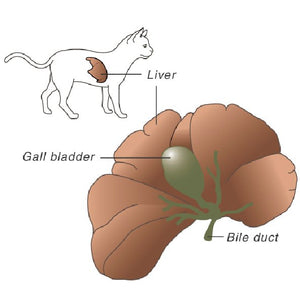Liver disease is more common in cats than is commonly realized. It is important to recognize for leaving the disorder untreated will result in the liver shutting down and the cat dying. Literally, your cat will starve to death. One of the earliest symptoms is jaundice, which shows as a yellow coloring of the cat’s eye whites.
It is hard to identify a cat is suffering from liver disease because the signs and symptoms vary. Some might show decrease in appetite, weight loss, vomiting, diarrhea, depression and jaundice. Other cats pass off pasty looking stool and display inappropriate urination and defecation behavior. This happen because fatty liver disease causes the liver to be is weighed down by rapid fat accumulation and simply shut down.
Immediate medication treatment is necessary for the recovery of liver disease. The treatment would depend on the cause and may include antibiotics, coagulation treatment for bleeding, intravenous fluid therapy, appetite stimulants, anti-emetics and diet management.
When preparing a diet plan for a cat with liver disease, note that he needs a high-quality protein diet in moderate amount, with most of the cat’s caloric intake coming from non-protein sources. If you are preparing your own food, it is recommended that the diet be based around eggs, cottage cheese, rice and liver. Your cat may also need multivitamin supplement.
Small, easily digestible and frequent meals are generally recommended. Many experts also recommend organic foods because they are not exposed to chemicals, artificial colors or preservatives.
It may seem like a lot of work, but preparing the special diet necessary is well worth the effort. If you have more than one cat, it will be necessary to keep feeding stations separate so you can watch the cat who is ill. You will need to keep a close eye on his eating habits.

